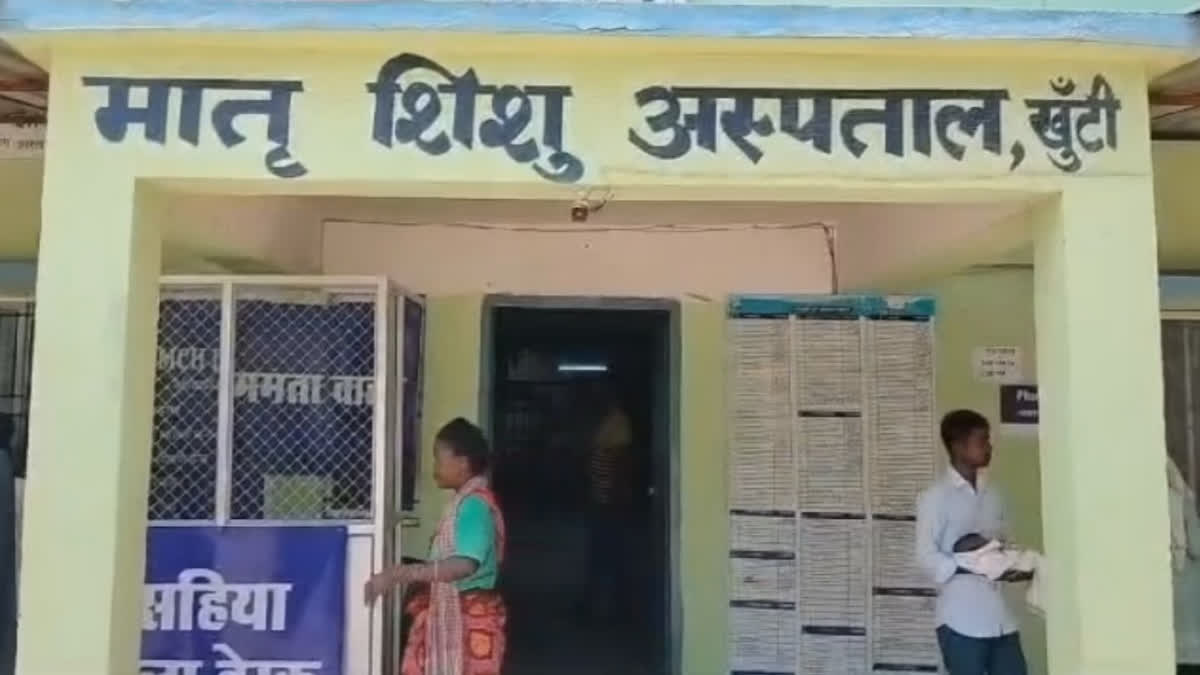Ranchi (Jharkhand): Teenage pregnancies and childbirths are happening under the nose of government in Khunti tribal belt, which is hardly 30 killometers from power corridors of Ranchi, and part of the Lok Sabha constituency of Union Tribal Affairs Minister.
Young tribal girls are giving birth to children at a young age, that too in government hospitals. Most of these girls are in the age range of 12 to 16. In the last three months alone, between 75-80 adolescent girls have delivered babies, according to the records that the hospitals maintained and ETV Bharat was able to access. This was also confirmed by a doctor serving in one of the government hospitals.
A civil surgeon while confirming the teenage pregnancies said that there have been cases of child marriages in the region. According to the hospital records, three teenage girls gave birth in a hospital in the Murhu area recently.
Most of the such cases have been reported from opium-affected villages of Maranghada, Chichigida, Kooda, Sarvaada, Landup, Poseya, Dehkela.
"Lack of proper education and substance abuse could be one of the reasons behind this. Children work in opium fields to earn money rather than going to school, children have easy access to local alcoholic drinks and drugs," Civil Surgeon, Nageshwar Manjhi said.
Teenage pregnancy is attributed to two factors: one to substance abuse and another to the tribal culture "Dhuku," which allows young girls to have a live-in relationship with boys of their age group. Despite the existence of the child protection systems like the Child Welfare Committee (CWC) in the area, the institutions haven't been able to step in to prevent teenage pregnancies. The CWC made up 'Dhuku' an alibi.
Tanushree Sarkar, the chairperson of the CWC, pointed at the "Dhuku culture" as one of the main contributing factors to teenage pregnancies. "The CWC team will identify and rehabilitate such girls," Sarkar said.
Protection of Children from Sexual Offence (POCSO) Act, which aims to protect minors from sexual abuse and exploitation is blatantly being violated in this region, in the name of a cultural practice, she said, adding that "Our team will also make sure that those involved in such cases get punished under relevant legal sections, including POCSO."
Even though local government hospitals had records of such cases, the officials of district administration feigned ignorance about teenage pregnancies and childbirths.
Deputy Development Commissioner Shyam Narayan Ram promised to take relevant measures following the outcome of the 2024 Lok Sabha election when ETV Bharat informed him about teenage pregnancies.
In addition to opium cultivation, the availability of local alcohol 'Hadia' is what makes young girls vulnerable to teenage pregnancy. It raises a major health concerns for young girls in the area and people have started realising this. Locals are upset about this problem and have repeatedly sought government intervention. Tribals living in the area are reluctant to speak about this publicly.



